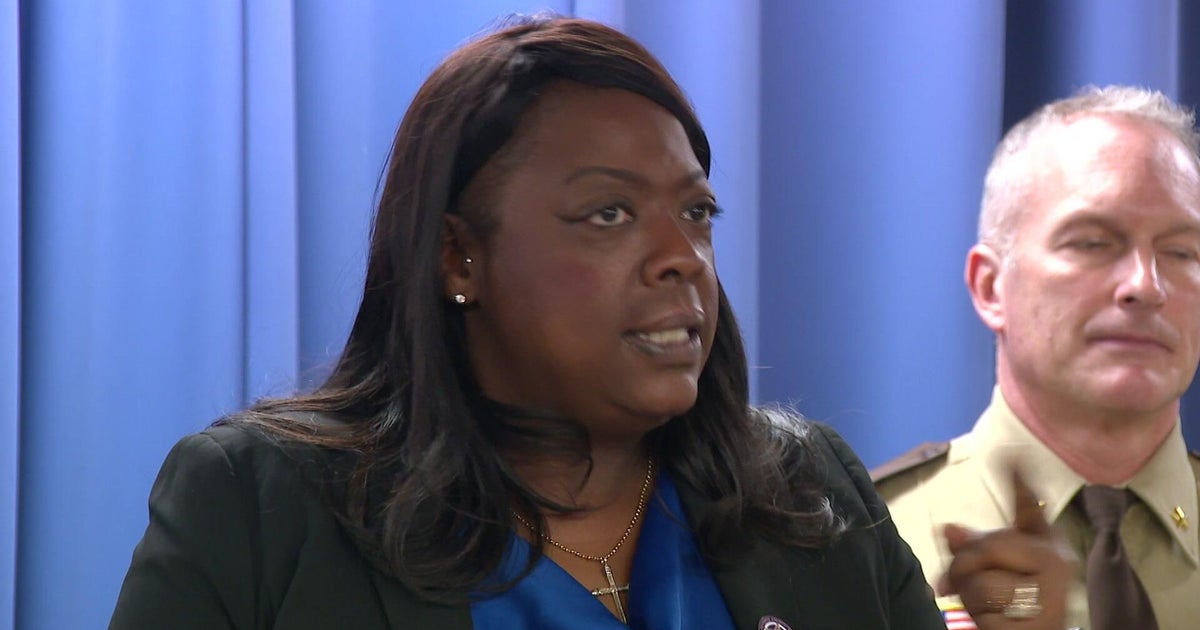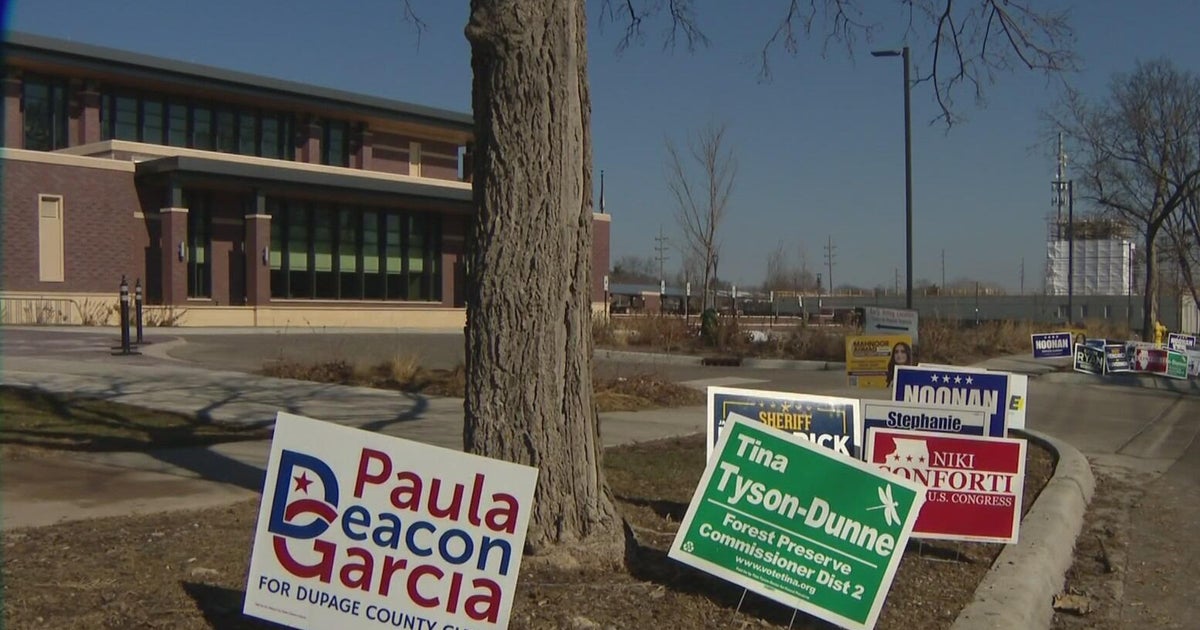Presidential Bid Over, Bachmann Faces Big Decision
ST. PAUL, Minn. (AP) — Michele Bachmann's decision to end her presidential campaign leaves the Minnesota Republican with another big one: whether to seek a fourth term in the U.S. House or direct her newfound political celebrity elsewhere.
Bachmann would be heavily favored to keep her seat in the Republican-leaning 6th District unless it's significantly reshaped by redistricting early this year. But after months in the national spotlight of the presidential race, she could determine she'd be more influential in a different role.
"I don't think she'll run for re-election," Kent Kaiser, a Minnesota GOP operative who supports Mitt Romney for president but remains a Bachmann fan, wrote in an email to The Associated Press. She could try instead for an appointment in a new Republican administration, he wrote, or consider a potentially lucrative spot on the speaking circuit.
Kaiser said Bachmann might try to model her path after the one taken by another tea party favorite Sarah Palin, who as John McCain's running mate in 2008 was the first woman on a national GOP ticket. Palin, who weighed a 2012 presidential run herself, resigned as Alaska's governor to join the speaking circuit and write a book.
"She must look at Palin and believe she could be even better in the media, as a kingmaker, and as a speaker," Kaiser said.
Bachmann didn't tip her hand about future political plans during her concession speech Wednesday in Des Moines but vowed to remain engaged in issues, especially in her opposition to changes in federal health care law.
"Make no mistake: I will continue to fight for our country," she said.
Bachmann's strength is considerable in her district, which starts in the suburbs east of St. Paul and loops north to St. Cloud. Though she spent much of the past half-year out of state on the presidential trail, no Republican or notable Democrat dared announce a campaign for her seat. In previous races, Bachmann raised piles of money and easily handled well-funded Democratic opponents; the woman Bachmann defeated in 2010 moved to another district to try her luck this year against a less formidable incumbent.
"It's hard to see who would want to or be able to mount a serious challenge to her if she wants to run for re-election," said Harry Niska, a Republican activist in the 6th District.
David FitzSimmons, chairman of the 6th District Republican Party, said Bachmann would be able to argue that she shifted the tone of the GOP presidential race to the right, particularly in her strong and repeated denunciations of President Obama's health care overhaul.
"Because of her, that entire field had to go on the record on that issue, they had to fight over who would be the fastest to repeal Obamacare," said Fitzsimmons. He said he does not know Bachmann's plans but assumes she will run again.
Her deadline to file for reelection isn't until June 5, though she'd likely get in sooner than that.
Bachmann's presidential campaign did present Democrats with some political fodder, should they face her again. She often stressed her family roots in Iowa — she was born in Waterloo but moved with her family to Minnesota while still young — and in recent months, missed most congressional votes.
"I think she's got some questions to answer back home," said Bill Usher, chairman of the 6th District Democrats. "Like, you know, why did you basically ignore your district until you couldn't anymore? She's going to have to answer why running for Congress wasn't that important until she had to bail out of the presidential race."
Since declaring her candidacy June 13, Bachmann has missed 71 percent of key votes in the House, according to a database compiled by Project Vote Smart, a nonpartisan organization that compiles information on candidates and government officials. At times she went months between votes.
Still, even Usher acknowledged her formidability. "No matter what people think of her, she was a money machine. She raised record-breaking amounts for her last race."
Bachmann and other potential candidates may wait to commit until after new congressional lines are drawn. The 6th District saw more population growth in the last decade than any other in Minnesota, meaning it could be redrawn in a way that makes it less favorable to Republicans. Minnesota Democrats have proposed a map that would throw Bachmann into the same district as six-term Democratic U.S. Rep. Betty McCollum. A state judicial panel will set the final map.
Republicans don't have a strong challenger to U.S. Sen. Amy Klobuchar, but that could be a treacherous race for Bachmann given Klobuchar's popularity and Republican struggles in statewide races in recent years.
Bachmann might even decide to leave politics altogether for the speaking circuit or the gloss of TV or radio, where she could easily exceed her $174,000 annual congressional salary.
"There's no question that this woman was made to be in the talk media world, either as a guest or as a host/commentator," said Michael Harrison, publisher of the trade publication Talkers. He said she would be a major acquisition if she decided to go into talk radio or television.
It's that, or put her fate once more into the hands of voters. In the St. Paul suburb of Woodbury, at the east end of her district, interviews with some of Bachmann's constituents the day her campaign folded found that those who liked her still did. And those who didn't still didn't.
"She's worn out her welcome," said Todd Doeser, 42, a sales rep for a food company who has never voted for Bachmann. "She was more focused on running for president than she ever was on this job."
But Debora Boyd, 48, a Herbalife distributor, called Bachmann "a good strong voice for conservatives" and said she hoped to see her run for re-election.
"It's too bad they didn't rally around her for president," Boyd said. "But if she comes home, we'll rally around her here."
(© Copyright 2012 The Associated Press. All Rights Reserved. This material may not be published, broadcast, rewritten or redistributed.)







